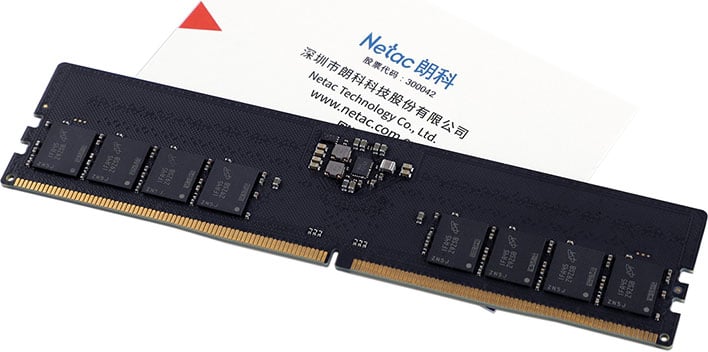There is not a single consumer platform that supports
DDR5 memory at the moment, but that will change by the end of the year, when Intel launches Alder Lake. At that point the DDR5 era will have officially begun. While we wait, however, memory makers are readying DDR5 modules. To that end, two Chinese outfits have both begun mass producing DDR5 memory.
One of them is Jiahe Jinwei, which shared some photos of its DDR5 modules (one of which you can see above). The company made quick work of the Micron DDR5 memory chips it received last month, plopping them onto single-sided 16GB and double-sided 32GB modules running at 1.1V.
The first
DDR5 products from Jiahe Jinwei operate at 4,800MHz. Some extreme DDR4 kits can hit that same frequency, but they are very much the niche exception to the rule (and very expensive to boot). As for the memory timings, they are currently set at 40-40-40.
As time goes on, Jiahe Jinwei says it will produce higher frequency modules, in addition to larger capacity DDR5 memory kits. In case you are wondering, the official specifications for DDR5 memory as set forth by JEDEC allows for speeds of up to 6,400MHz. But as we have seen in DDR4 territory, memory makers will eventually venture into higher, unofficial speed tiers.
Speaking of which,
Netac is also producing DDR5 memory modules, and according to
MyDrivers, it is working with motherboard makers such as ASUS and MSI to ensure compatibility with upcoming products.
Netac is also leveraging Micron-brand memory chips for its first DDR5 modules. To kick things off, it is producing single-sided 16GB modules that operate at 4,800MHz, with the same 40-40-40 timings and 1.1V. But that is just the beginning.
The company has much faster speeds in sight. How fast, exactly? Netac recently said it has begun research and development efforts into
10,000MHz modules. It's not clear how close Netac is to offering such a blazing fast DDR5 solution or what the timings and voltage requirements will end up being, only that it plans on hitting that mark at some point.
In addition to Alder Lake leveraging DDR5 memory, so too will AMD's upcoming Zen 4 processors, which will likely arrive in early 2022. It will be interesting to see what impact DDR5 will have on real-world performance compared to DDR4, which is a discussion for another day.

